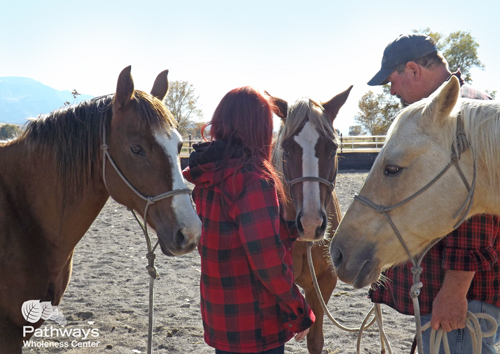Expressive experiential therapies are offered at Pathways' Inpatient Wholeness Center in Glenwood, Utah and at Pathways' Outpatient Recovery in Sandy, Utah. Experiential therapy can be broken down into three separate categories: expressive therapy, recreational therapy, and animal-assisted therapy. Experiential therapy is often used in association with other therapy techniques. As a person starts to take positive steps in their therapy, recreational therapy may be used to help people adjust and cope with social situations that may have been very hard for them to participate in before treatment. This can be an effective measure to boost confidence and help integrate what they’ve learned in their treatment program into a social setting.
Call (801) 895-3006 to Receive a Free Consultation and see if Experiential Therapy is right for you!

Benefits of Recreational Therapy
The fundamental principle behind many experiential therapies is to uncover and address subconscious issues that may have been influencing an individual’s drug-seeking behaviors or mental health issues.
A variety of life skills and strategies are taught such as:
- Stress management
- How to set goals
- Dealing with cravings
- Prioritizing healthy needs
- Emotional intelligence
- Effective communication
And while this is a common aim for many different types of therapy, the way experiential therapy activities differ is that they try to bring about these issues with active, sensory, and usually physical experiences.
Experiential therapy activities could include:
- Painting and expressive arts therapy

- Hiking
- Animal-assisted therapy/ Equine therapy
- Dancing
- Music
- Rieke and energy work
- Yoga and Meditation
- Physical Fitness
Often, the client and the experiential therapist will process the experience together either during or after the activity. It’s this discussion about the thoughts and emotions that rose to the surface during the activity that helps the patient become more aware of their feelings.
And once these emotions are on the table, the patient and the therapist can work together to connect them back to memories, events, or feelings that could have had an impact on their continued substance abuse and mental health.
- increased self-esteem
- Pro-social connection
- Problem-solving
- Physical health
- Honesty
- Compassion
- Teamwork
- Self-Reliance

